Years of continuous and targeted research in our laboratory on a wide variety of plant-damaging microorganisms make us experts for all diagnostic questions relating to your crops. Learn more about diagnostics and identification of the different species.

In addition to the major crops such as wheat, corn or rapeseed, we also offer analytical services for special crops such as cress.
Anything is possible, from testing small symptomatic spots to bulk samples of leaves or stem material. Rely on our experience for an optimized production.
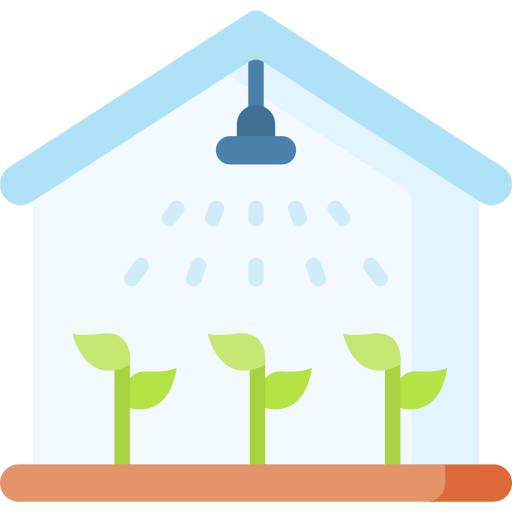
Greenhouse cultivation of ornamental plants or vegetables, medicinal and aromatic herbs is a particular challenge, especially regarding the management of microorganisms.
Secure your production stages with the specific diagnostics of IDENTXX.

In addition to the major crops such as wheat, corn or rapeseed, we also offer analytical services for special crops such as cress.
Anything is possible, from testing small symptomatic spots to bulk samples of leaves or stem material. Rely on our experience for an optimized production.

Greenhouse cultivation of ornamental plants or vegetables, medicinal and aromatic herbs is a particular challenge, especially regarding the management of microorganisms.
Secure your production stages with the specific diagnostics of IDENTXX.
Processing time is usually 10 working days. If you are in a hurry, we can shorten the analysis times to 1 day after sample receipt.
Molecular-biological pathogen diagnostics recognizes pathogens long before symptoms of a disease appear on the crop. Use this advantage in the following applications:
By getting your leaf samples tested, you will receive valuable insights into the success of your treatment or your quality management during the season. Early identification of infection events is particularly important for successful production in greenhouse cultivation. In the case of larger field projects, additional information such as preculture, treatment times or infestation assessment can be recorded and passed on to you with the help of sample accompanying documents.
Supplement your agent test in the field or greenhouse with accompanying molecular biological tests and recognize the effect of your substances even before you assess them.
Use our range of examinations, for example, as a quick pre-screening for your seed batches, before you carry out further time-consuming and costly quality assurance measures such as grow-out tests.
Mixed infections with various pathogens can naturally occur in field trials. The resulting damage patterns can be ambiguous and thus have a negative impact on the assessment. With specific diagnostics, you create more security in your variety assessment in a short time.
We offer three fundamental analysis tools for answering your phytopathological questions. Together we determine which one suits your purposes the most in a non-binding preliminary discussion .
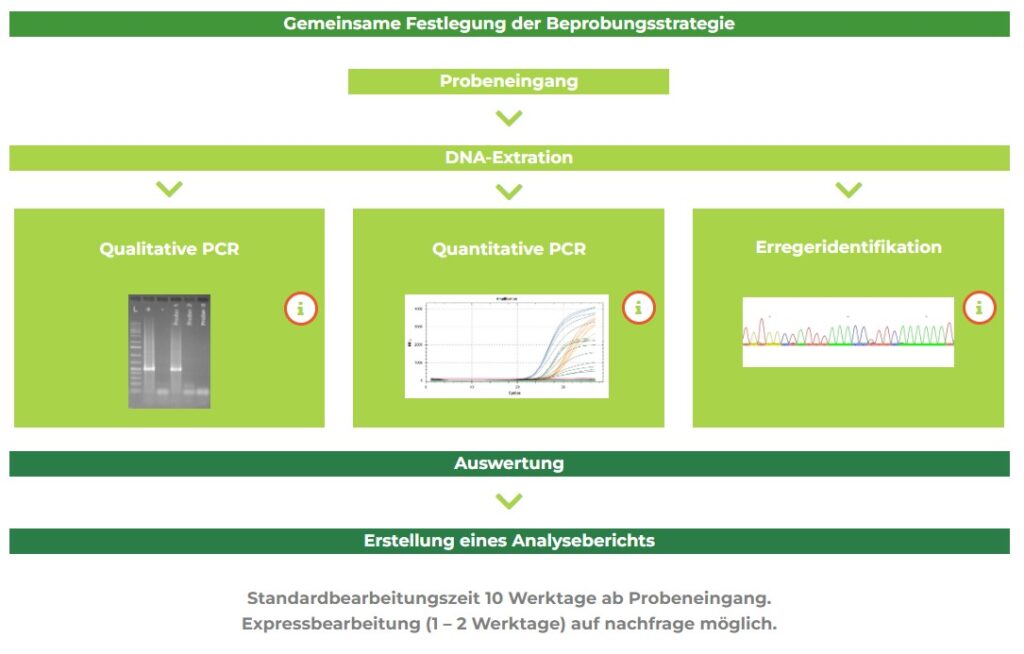
Joint definition of the sampling strategy
Sample receipt
DNA-Extraction
Qualitative PCR
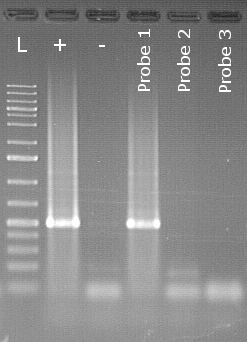
Quantitative PCR
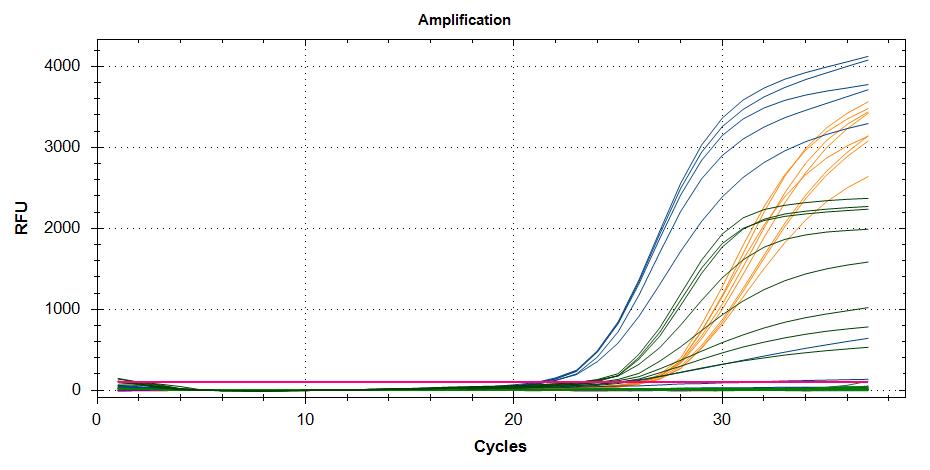
Pathogen identification

Evaluation
Creation of an analysis report
Standard processing time 10 working days from sample receipt.
Express processing (1 – 2 working days) request on possible.
We offer tailor-made solutions for your phytopathological questions.
In order to make optimal use of our competencies for you, we offer you a non-binding preliminary discussion to clarify the following questions.
Use our many years of expertise in analysis and processing strategies to answer your questions.
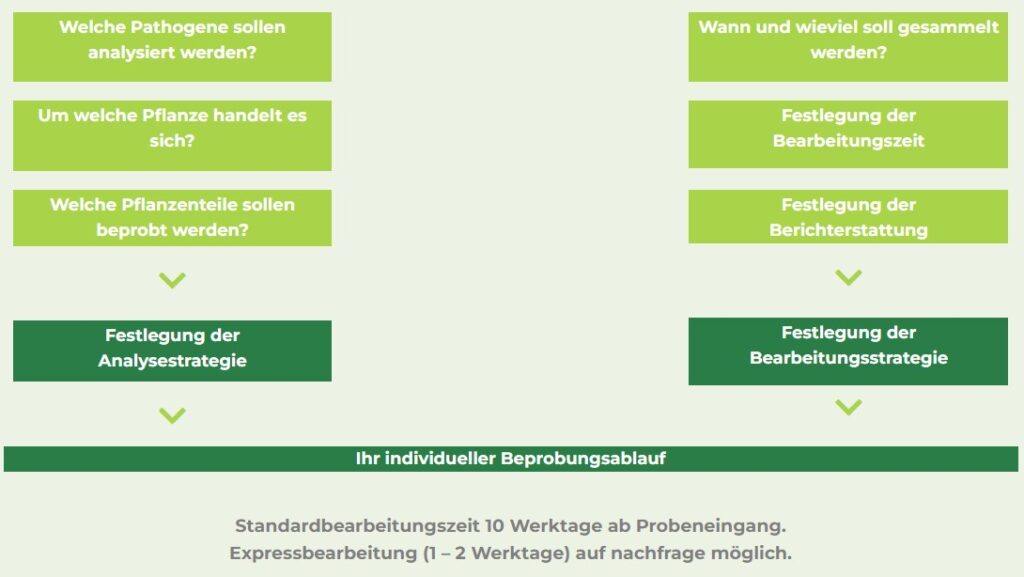
Which pathogens should be analyzed?
When and how much should be collected?
Which plant is involved?
Definition of working process
You individual sampling process
Standard processing time 10 working days from sample receipt.
Express processing (1 – 2 working days) request on possible.
Contact
Address
Information